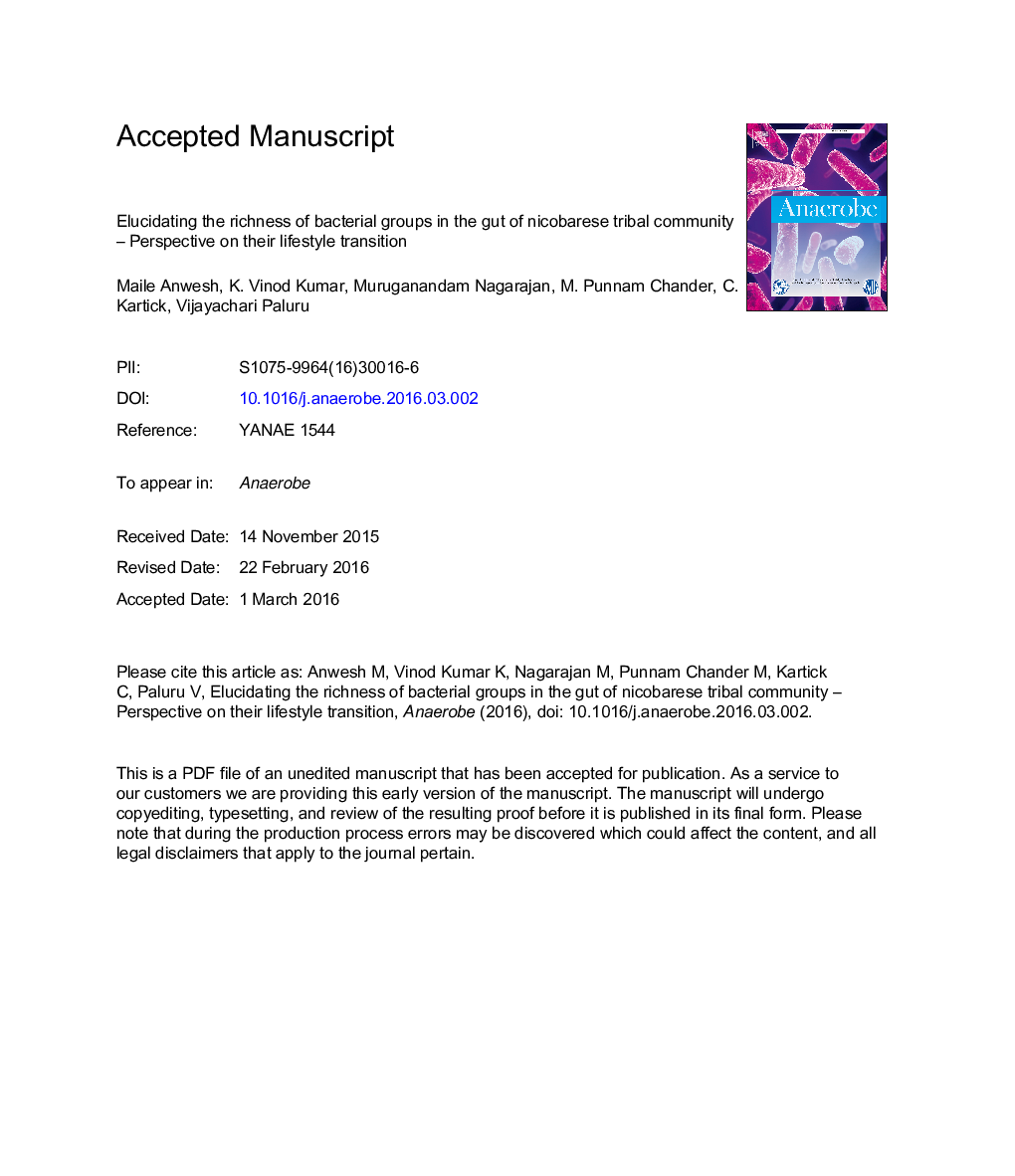| Article ID | Journal | Published Year | Pages | File Type |
|---|---|---|---|---|
| 6128589 | Anaerobe | 2016 | 35 Pages |
Abstract
Lifestyle and dietary habits are crucial features that can alter the gut microbiome of humans. Humans, along with their gut microbes, have coevolved in order to sustain themselves in different environments. They were able to adapt themselves to the dietary sources available in their environment. The relation between humans and their gut microbiota and the link with coevolution forms an interesting aspect of research. To understand this association, the participation of ancient communities with less exposure to urbanization is a prerequisite. The current study quantifies the richness of bacterial groups in the gut of Nicobarese. This group of population is an ethnic community of Nicobar group of islands, who have migrated from the remote to rural and urban areas. Alterations in the dominant bacterial groups in relation to their lifestyle transition were emphasized, by comparing the participants from remote, rural and urban settings. The remote cohort remains diverse and stable than the other two cohorts and had higher numbers of Bacteroidetes. Prevotella forms the dominant genus in the Bacteroidetes phylum, indicating the carbohydrate-rich diet of remote Nicobarese. Whereas, the urban cohort is dominated by Bifidobacterium group rather than the Bacteroidetes. Implications of dietary patterns, the transition to different lifestyles and their impact on the microbiota among these cohorts are discussed.
Related Topics
Life Sciences
Immunology and Microbiology
Microbiology
Authors
Maile Anwesh, K. Vinod Kumar, Muruganandam Nagarajan, M. Punnam Chander, C. Kartick, Vijayachari Paluru,
